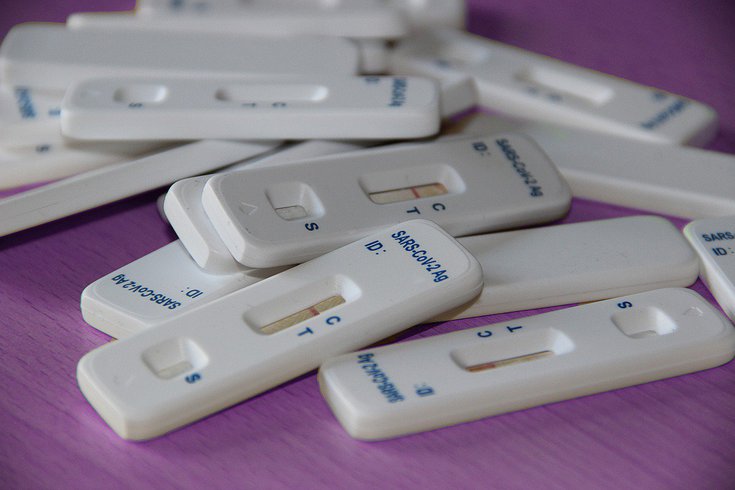
December 29, 2021
 Alexandra Koch/Pixabay
Alexandra Koch/Pixabay
The uptick in COVID-19 cases in the Philadelphia region is being attributed to holiday gatherings and the emergence of a new, highly-contagious omicron subvariant, XBB.1.5. Above, COVID-19 rapid tests.
At-home, rapid COVID-19 tests recognize infections caused by the omicron variant, but they are less likely to pick them up in the early stages of the disease, the U.S. Food and Drug Administration said Tuesday.
Preliminary studies found rapid antigen tests are less sensitive to omicron than previous coronavirus variants. The FDA did not identify the tests used in the analysis, which used patient samples containing live virus.
"The FDA continues to authorize the use of these tests as directed in the authorized labeling and individuals should continue to use them in accordance with the instructions included with the tests," the FDA said. "Antigen tests are generally less sensitive and less likely to pick up very early infections compared to molecular tests."
Rapid antigen tests can provide results in minutes and are sensitive enough to identify someone spreading the virus at that moment. That's why many public health officials advise people take them prior to indoor gatherings. PCR tests can identify infections earlier, but they must be processed in a lab and have much longer turnaround times.
People who test negative using an antigen test, but are still experiencing symptoms or have a high likelihood of infection due to exposure, are advised to self-isolate and seek follow-up care with a health care provider, who may recommend a PCR test.
There are 419 tests and sample collection devices currently authorized by the FDA. Earlier this month, the Biden administration announced it would distribute 500 million free rapid tests in January as part of its response to the latest COVID-19 surge.
The U.S. Centers for Disease Control and Prevention significantly lowered its estimate of the prevalence of omicron among new cases.
The CDC previously had estimated that omicron was causing 73% of new cases as of Dec. 18. New data suggests omicron is the dominant variant, but that it only accounted for about 23% of new cases at that time.
As of Dec. 25, an estimated 59% of new cases were caused by omicron. The delta variant accounted for the other 41%.
Experts warn that the delta variant, which is known to cause more severe illness, is still causing a significant number of COVID-19 infections.